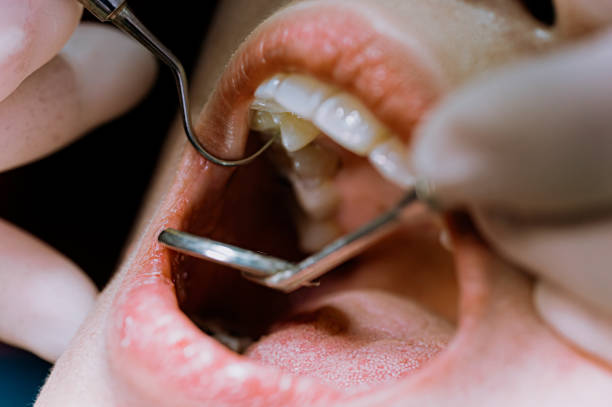The Connection Between Teeth Cleaning and Heart Health You Didn’t Know About

Your teeth and your heart might have more in common than you think. It turns out that keeping up with regular teeth cleaning isn’t just about a bright smile—it could also play a role in protecting your heart. Surprising, right? Studies have shown a strong link between oral health and heart health, with gum disease and poor dental hygiene being linked to conditions like heart disease and stroke. It’s a reminder that what’s happening in your mouth can affect the rest of your body in ways you might not notice.
Understanding this connection can make those dentist appointments feel a little more important—and maybe even lifesaving.
How does regular teeth cleaning impact heart health?
Regular teeth cleaning plays a crucial role in maintaining not only oral health but also heart health. Here’s how consistent dental care can have a positive impact on cardiovascular well-being:
- Reduces Inflammation: Gum disease, or periodontal disease, is a common condition that causes inflammation of the gums. This inflammation can spread to the bloodstream, contributing to systemic inflammation, a known risk factor for heart disease. Regular teeth cleaning helps prevent gum disease by removing plaque and tartar buildup, reducing inflammation both in the mouth and potentially in the body.
- Prevents Bacterial Infections: Untreated gum disease can allow harmful bacteria from the mouth to enter the bloodstream, potentially affecting the heart. These bacteria can contribute to the formation of plaques in the arteries, leading to atherosclerosis, a condition that increases the risk of heart attack and stroke. Teeth cleaning helps remove these bacteria, lowering the chances of infection and related cardiovascular issues.
- Improves Overall Health: By maintaining a healthy mouth, regular teeth cleaning can prevent the need for more invasive dental treatments that may contribute to further health complications. A clean mouth supports the immune system, helping the body fight off infections and reduce the risk of heart disease.
Regular teeth cleaning promotes good oral health and plays a vital role in supporting heart health by reducing inflammation, preventing infections, and contributing to overall wellness.
Can oral hygiene reduce the risk of heart disease?
Oral hygiene significantly reduces the risk of heart disease by preventing the buildup of harmful bacteria and inflammation in the body. Here’s how maintaining good oral hygiene can contribute to heart health:
- Prevents Gum Disease: Regular brushing, flossing, and dental cleanings help prevent gum disease, a condition that can lead to inflammation in the gums. If left untreated, this inflammation can spread into the bloodstream, increasing the risk of cardiovascular issues.
- Reduces Bacteria in the Mouth: Gum disease allows harmful bacteria to enter the bloodstream, attaching to the heart’s blood vessels and contributing to plaque buildup, a major cause of atherosclerosis. By keeping the mouth clean, individuals reduce the number of harmful bacteria that may enter the bloodstream, thus lowering the risk of heart disease.
- Controls Systemic Inflammation: Chronic gum disease is linked to higher levels of systemic inflammation, a major contributor to heart disease. Good oral hygiene helps control this inflammation, lowering the risk of developing heart conditions.
- Supports Overall Health: By maintaining good oral hygiene, individuals are promoting overall health, including cardiovascular health. Dental care is often an early indicator of potential health issues, allowing for early intervention to prevent heart problems.
Oral hygiene can significantly reduce the risk of heart disease by preventing gum disease, reducing harmful bacteria, and controlling inflammation. Regular dental care is an important aspect of heart health.
What is the link between gum disease and cardiovascular problems?
The link between gum disease and cardiovascular problems is supported by research indicating that poor oral health can contribute to heart-related issues. Here’s how gum disease may impact cardiovascular health:
- Bacteria Entering the Bloodstream: Gum disease, or periodontal disease, causes inflammation and bleeding of the gums, which allows harmful bacteria to enter the bloodstream. Once in the bloodstream, these bacteria can travel to the heart, potentially leading to infections and inflammation in the heart’s blood vessels.
- Atherosclerosis Development: The gum disease bacteria can contribute to plaque buildup in the arteries, a condition known as atherosclerosis. Over time, this plaque can narrow and harden the arteries, restricting blood flow and increasing the risk of heart attack, stroke, and other cardiovascular problems.
- Inflammation Connection: Chronic gum disease is linked to increased inflammation throughout the body. Inflammation plays a key role in the development of cardiovascular disease, as it can contribute to the hardening of arteries and increase the risk of clot formation.
- Increased Risk of Heart Disease: Studies have shown that people with gum disease are more likely to develop heart disease, including conditions like coronary artery disease and heart attack. By maintaining good oral hygiene and preventing gum disease, individuals can reduce the risk of cardiovascular complications.
Gum disease contributes to cardiovascular problems by allowing harmful bacteria into the bloodstream, promoting inflammation, and increasing the risk of conditions like atherosclerosis and heart disease. Regular dental care can help mitigate these risks.
Why is professional teeth cleaning important for overall health?
Professional teeth cleaning is essential for overall health, as it maintains oral hygiene and helps prevent serious health conditions linked to poor oral care. Here’s why it is important:
- Prevents Gum Disease: Professional teeth cleaning removes plaque and tartar buildup, which can lead to gum disease if left untreated. Gum disease is linked to a variety of systemic conditions, including heart disease and diabetes, making regular cleanings essential for overall health.
- Reduces Risk of Heart Disease: Studies show that gum disease can increase the risk of heart disease due to inflammation and bacteria in the bloodstream. By eliminating plaque and bacteria, professional cleanings reduce the risk of cardiovascular problems.
- Improves Overall Immune Function: A clean mouth supports the immune system by reducing the number of harmful bacteria that can enter the body. This helps the body fight infections and maintain overall health.
- Prevents Tooth Decay and Loss: Regular professional cleanings help prevent cavities, tooth decay, and tooth loss. By maintaining strong, healthy teeth, individuals can avoid the need for more invasive dental treatments and preserve their overall well-being.
- Early Detection of Health Issues: During a professional cleaning, dental professionals can spot early signs of issues like oral cancer, diabetes, or even nutritional deficiencies. Early detection allows for quicker treatment and better overall health outcomes.
Professional teeth cleaning is vital to maintaining oral and overall health, preventing serious conditions, and supporting overall wellness.
Discover How Teeth Cleaning Can Improve Heart Health!
We at Illume Dental of McKinney feel that good oral health is essential for heart health. Poor dental hygiene and gum disease allow hazardous bacteria to enter the bloodstream and inflame arteries, increasing the risk of heart disease. Expert teeth cleaning removes plaque and bacteria, preventing gum disease and cardiovascular disease. Normal dental cleanings protect your heart and smile. Discover how oral health helps heart health at Illume Dental of McKinney today!



